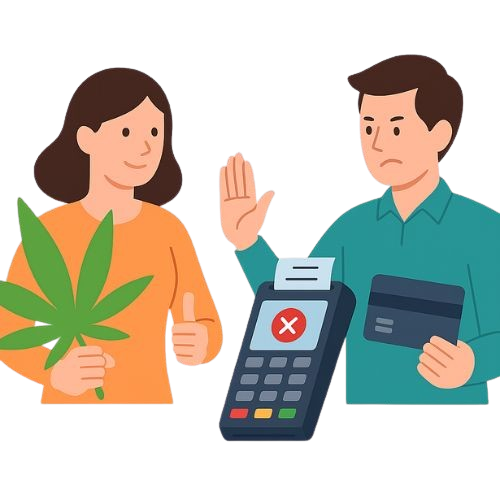The Dos and Don’ts of CBD Payment Processing

Summary
Navigating payment processing for CBD merchants can feel complicated given shifting regulations, high chargeback risk, and limited processor support. This guide lays out key practices to follow and mistakes to avoid. You will learn how to choose the right account, label products accurately, diversify payment methods, handle reserves, comply with state laws, and plan for emerging trends.
Why CBD Carries High Risk
CBD products often fall into a category that traditional processors avoid. Regulators in different states and countries treat hemp extracts in varied ways. Higher chargeback rates and legal uncertainty push processors to label merchants selling CBD as high risk. General‑purpose gateways may shut down accounts without warning once they spot CBD‑related transactions.
Dos: Practices That Protect Your Revenue
- Choose a Specialized High‑Risk Merchant Account
Opt for a provider with demonstrated CBD expertise. A dedicated CBD oil merchant account ensures underwriting terms account for hemp‑derived products under 0.3% THC, including fraud screening and custom guidelines. - Use Clear, Fact‑Based Product Labels
List THC content, botanical source, extraction method, and intended use in product descriptions. Avoid unverified health claims to reduce chargebacks due to customer disputes. - Integrate Multiple Payment Options
Relying on a single card processor can leave you vulnerable if policies change. Combine credit cards, ACH, e‑checks, and digital wallets. A reliable payment gateway with fallback routing reroutes transactions when one channel is blocked. - Implement Chargeback Prevention Tools
With chargeback ratios often exceeding 1%, use AVS and CVV checks at checkout. Employ automated fraud‑screening services to flag risky orders before settlement. Clear billing descriptors help customers recognize charges. - Understand Reserve Requirements
High‑risk processors typically hold 5–10% rolling reserves for 90–180 days. Factor reserve timing into cash flow forecasts to avoid frozen funds during disputes. - Stay Compliant with Evolving Policies
Monitor state and federal regulations for hemp and cannabis products. Confirm each sale meets local requirements and review international import rules to prevent blocked transactions and fines. - Leverage Open Banking for Faster Underwriting
In supported regions, open banking APIs can speed merchant verification. Learn more about the impact of open banking on high‑risk merchant accounts to reduce underwriting time.
Don’ts: Common Mistakes That Hurt Your Business
- Don’t Use a Standard‑Risk Processor
Avoid mainstream gateways that lack CBD support. Instead, choose a provider specializing in high‑risk processing to prevent sudden terminations and frozen funds. - Don’t Ignore Billing Descriptor Clarity
Vague company names on statements drive friendly‑fraud claims. Always set descriptors that match your brand or product name. - Don’t Overlook Detailed Compliance Checks
Sales legal in one state may breach rules elsewhere. Maintain a compliance matrix of regional regulations before activating checkout. - Don’t Delay Customer Support for Disputes
Slow dispute resolution leads to automatic chargeback losses. Partner with processors offering dedicated dispute teams and rapid claim filings. - Don’t Build Your Integration from Scratch
Homegrown gateway integrations risk security gaps and lack redundancy. Use a proven high‑risk processing platform with built‑in PCI modules and webhooks.
Next Steps: Actionable Checklist
- Compare multiple high‑risk providers on fees and reserve terms
- Validate supplier certificates of analysis for each product batch
- Test low‑value transactions and subscription workflows
- Train support agents on dispute procedures and billing descriptor clarity
- Monitor decline rates, chargeback ratios, and customer feedback weekly
Looking Forward: Emerging Payment Trends
- Expansion of embedded finance enabling in‑app CBD purchases
- Stablecoin settlements to reduce or eliminate chargebacks
- AI‑driven underwriting to refine risk scoring and potentially lower reserves
Following these dos and don’ts will help CBD merchants secure reliable payment processing, reduce disputes, and maintain healthy cash flow—even as regulations continue to change.